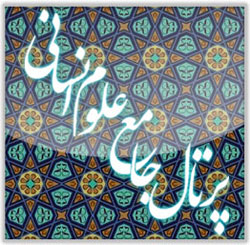Designing a Nursing Home with an Eclectic Architectural Approach
Keywords:
Nursing home, Eclectic architecture, Environmental psychology, District 22 Tehran, Elderly quality of lifeAbstract
The aim of this study is to design a nursing home in District 22 of Tehran using an eclectic architectural approach to meet the psychological, social, and physical needs of the elderly. This applied research adopts a descriptive-analytical method using library, documentary, and field-based data. Theoretical and psychological foundations related to aging and elderly care environments were collected from academic sources. Then, through the analysis of domestic and international case studies and the climatic assessment of District 22, site planning was carried out. A physical program was also developed for 250 residents, covering residential, therapeutic, rehabilitation, administrative, service, and cultural spaces, based on architectural standards. Field analysis and the development of the physical program indicated that eclectic architecture, due to its flexibility in form, color, and stylistic combinations, effectively addresses the multidimensional needs of the elderly. SWOT analysis confirmed that District 22 is climatically and environmentally suitable for such a project. The design of interactive spaces, green areas, integration of nostalgic and modern elements, and spatial variety play a key role in enhancing elderly residents’ sense of safety, independence, social interaction, and quality of life. The results show that using an eclectic architectural approach in nursing home design can promote mental health, increase life expectancy, and reduce social isolation in the elderly. This style allows architects to combine climatic, psychological, and cultural principles to create more humane and adaptive environments.
Downloads
References
1. KhodaMoradi A. The trend of aging and the need for health service planning for the elderly. Torbate Heydariyeh University of Medical Sciences Journal. 2018;6(3).
2. Dabbagh M. Principles of elderly housing design with an environmental psychology approach. Tehran: Tahan Publishing; 2015.
3. Aghajani S, Asadi Noqabi A. Theories of counseling and psychotherapy. Tehran: SAMT Publications; 2002.
4. Farshchi HR, Tahani M. Utilizing the capabilities of light and color in nursing homes. Architecture Studies Journal. 2019;2(7).
5. Alikhani V. Aging from different perspectives. Tehran: Parents and Teachers Association; 2002.
6. Adibifar P. Designing a nursing home based on environmental psychology [Master's thesis]: Islamic Azad University, Tabriz; 2015.
7. State Welfare Organization of Iran. Comprehensive guide to elderly services. 2002.
8. Hatami K. The role of SWOT analysis in the promotion of urban management (Case study: District 22 of Tehran). Urban Management Studies Quarterly. 2010.
9. Kasmaei M. Climate and architecture. Isfahan: Khak Publishing; 2002.
10. Nakhaei H. The importance of green space and its impact on human psychology. Green Space Bulletin. 2003(6).
11. Majnounian H. Principles of green space design. Tehran: University of Tehran Press; 1995.
12. Ghavami S. Healthy city: Design principles for the elderly and disabled. Tehran: City Printing Publications; 1994.
13. Zarghami E, Alfat M, Rahbar Sabbaghi S, editors. Designing elderly housing to enhance life expectancy. International Conference on Engineering, Art, and Environment; 2014; Poland.
14. Shamloo G. What is aging? Why do we age? Tehran: Chehr Publications; 1985.
15. Mehdipour M, Heydarian S. Appropriate services in elderly centers and their impact on quality of life. Social Welfare Quarterly. 2015;14(1).
16. Taghavi N. The elderly in society. Population Quarterly. 1995(11–12).
17. Tehran M. History of Tehran. 2016.
18. Salki M. Aging and its maladjustments. Proceedings of the First Conference on Aging and Health2006.
19. Abedi. Qualitative research methods in nursing. Tehran: Boshra Publications; 2006.
Downloads
Published
Submitted
Revised
Accepted
Issue
Section
License
Copyright (c) 2024 مینا حلیمی; ماندانا حلیمی (نویسنده)

This work is licensed under a Creative Commons Attribution-NonCommercial 4.0 International License.










